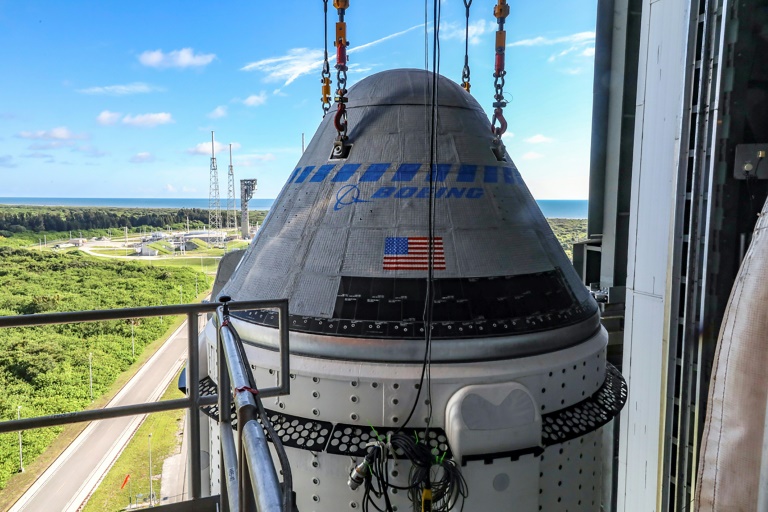Boeing is aiming for a test flight of its unmanned CST-100 Starliner capsule in the first half of next year and a potential launch of its crewed spacecraft at the end of 2022, company officials said Tuesday.
The CST-100 had been scheduled to fly to the International Space Station (ISS) from Cape Canaveral, Florida, on August 3 but the flight was aborted just hours before launch because of problems with propulsion system valves.
Boeing officials told reporters in a briefing on Tuesday that they were still conducting testing of the valves but they may heve become stuck because of moisture or condensation.
“Normal environment humidity was likely the source of that moisture in the valves,” Michelle Parker, Boeing Space and Launch chief engineer, said.
Boeing was forced to remove the spacecraft from the Atlas V rocket built by United Launch Alliance and transport it to a factory at the Kennedy Space Center for troubleshooting of the valves.
John Vollmer, vice president and program manager of Boeing’s Commercial Crew Program, said the aerospace giant was now looking to conduct the unmanned CST-100 test flight in the “first half of 2022.”
If that flight is successful, “we would look at CFT (crewed flight test) maybe by the end of the year,” Vollmer said.
“We like to see six months in between flights,” he said.
Boeing built the Starliner under contract with NASA to ferry astronauts to low Earth orbit following the end of the Space Shuttle program in 2011.
NASA gave both Boeing and SpaceX multi-billion dollar contracts to provide its astronauts with taxi services to the space station and end US reliance on Russian rockets for the journey.
SpaceX’s program has moved forward faster, having now undertaken four crewed missions.
Boeing’s program is lagging behind and the aborted Starliner launch was a setback for the company. Boeing needs to complete a successful uncrewed mission before it can carry astronauts.
During an initial unmanned test flight in December 2019, the Starliner capsule experienced glitches with its thrusters. It did not have enough fuel to reach the ISS and had to return to Earth prematurely.









